Senior figures from the FA, Chelsea, World Sailing, British Basketball League, Airspeeder, IMG, and Avid discuss the future of sport content
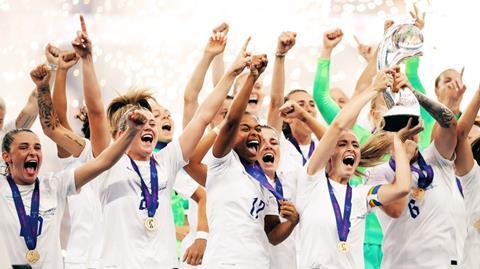
Last month, Broadcast Sport and Avid held a roundtable to discuss the future of content for sport rights holders.
Simon Meehan, head of publishing at Chelsea; Damien Cullen, senior content operations manager at The FA; Tom Roberts, content lead at World Sailing; Aaron Radin, CEO of the British Basketball League; Stephen Sidlo, head of media at Airspeeder; Brian Leonard, head of engineering - production and workflows at IMG; and Craig Wilson, product evangelist at Avid took part in the talk, with Broadcast Sport editor Jake Bickerton chairing.
The conversation touched on a wide range of subjects including, but not limited to, representing your audience on screen, the rise of fan-made content, how to work without live rights, and where the line is in terms of taking risks with creators.
An edited transcript of the discussion is below.
Jake Bickerton: What do you think is key in terms of fan engagement and attracting fans to your content?
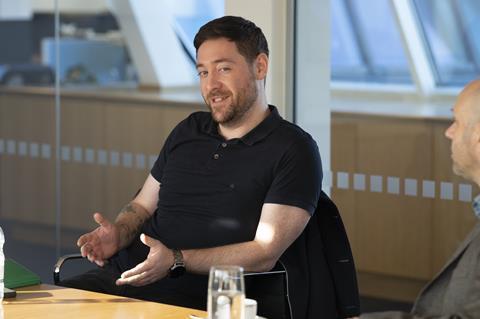
Stephen Sidlo: I think we need to hire producers that reflect our audience. That relatability between who’s asking the question, who’s doing the filming, who’s speaking to the athlete and brand, etc. Around 10 years ago, LadBible hired two 16-year-olds just to do Snapchat and gave them a platform to create content for their audience. For Airspeeder, we need to think about that. Rather than us in the C-suite room saying this is what the content should be, we should just allow that team to get on with it and make it personal for their audience. That goes across the whole board into how we build the sport as well. They’re going to need to have a committee of people who are our audience and decide who we want to market this new sport to.
Damien Cullen: That’s something we tried to do. Our post-match content used to be filmed against a branded back drop, and I used to film it that way. The person who replaced me, showed in 30 seconds showed why he was 10-times better than me. And it wasn’t the technical skills, as I felt I was stronger in that area, but in the way he is with the players. He is much more casual and relaxed, and the whole thing about him is he represents our audience a lot more than I do. And as a result, he gets the better responses. As I said, it’s not the technical side. He makes the camera secondary, and he just talks the way they like being spoken to and what they like to talk about, with no formality about it, and he gets higher engagement because of that. I totally agree, you need to be in that space where you capture the content that represents who you’re sharing it to.
Stephen Sidlo: We’re still defining who our audience is and each fan is going to be different. My dad’s a Man City fan, and he had a season ticket for 50 years. He’s not going to go into the metaverse. He’s going to watch it on TV. But our audience is also going to be young fans watching England players drink milkshakes on TikTok, things like this. There’s not, what used to be called, one football fan, who watched Roy Of The Rovers and so on. Now it’s so broad that we have to create content for all of them. We have to find producers that can create that content.
Damien Cullen: That’s exactly it. Not everyone wants the social media stuff. I tune in one minute before the game starts, and I leave one minute after it finishes. My daughter is totally different. We’re all different. Some people want the stats, some don’t.
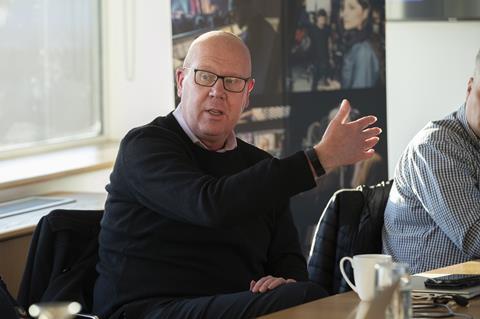
Craig Wilson: I think the World Cup is a really good example where a lot of people are interested in the sport who perhaps aren’t necessarily interested in the sport normally. One of my colleagues based in Israel has been watching the games and she’s not someone who would normally be interested in football at all. So, it’s trying to help organisations go beyond that traditional base and expand that audience because, to an extent, if you’re interested in football, you support Chelsea Football Club or Tottenham or whatever it is, you’re interested anyway. I think what a lot of clubs and organisations are trying to do is go beyond that traditional base and expand the audience.
Aaron Radin: I’m curious, is anyone thinking about secondary telecasts, either with secondary crews or UGC [user-generated content] channels?
Brian Leonard: With commentary, localisation is becoming quite big with having to do a Spanish version, and so on. But you could have a comedian doing a commentary and reach out to a different market. You could have 90-year-old women sitting there talking about the match. You don’t know what you’re going to hear, and it’s just trying to work out where you actually go and put in the effort.
Damien Cullen: And how you’re brand safe with it.
Aaron Radin: Have you guys seen what ESPN does with Manningcast? For Monday Night Football in the US, Peyton and Eli Manning are on a secondary channel to ESPN, and they basically do an L frame and those guys sit in their living rooms and just talk about the game, and it’s really funny. And they’re experts.
Brian Leonard What’s great about that is I would watch that when my main team wasn’t playing. So, if you’re watching a game you don’t care about as much, you can have that on in the background.
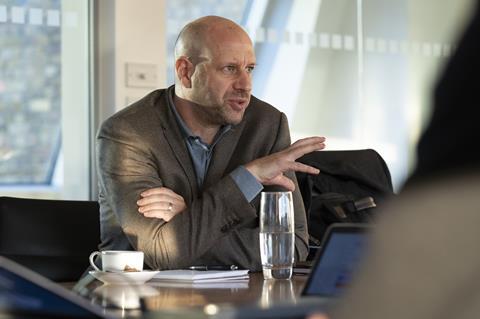
Aaron Radin: The NBA app gets in people who are either comedians or some personality from a local market to do commentary. Or they get people who are really deep in the weeds on stats. You have to look at what is the incremental cost to adding that additional viewpoint, and are people willing to watch it?
Damien Cullen: What we do have is reactions, like with Soccer Saturday or now with a more influencer/YouTube space where you have fans speaking very openly and authentically, but it’s maybe not very brand safe.
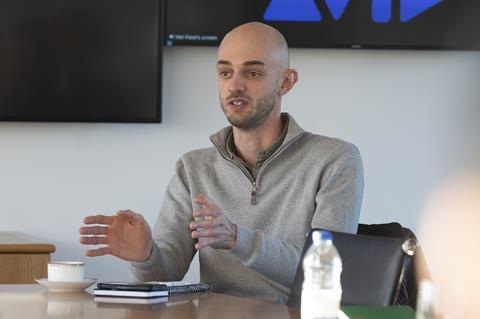
Tom Roberts: It’s interesting to hear more about these types of experience because we’re hosting the world championships next year and are reaching out to potential YouTubers to offer that different perspective on what’s happening, because there’s quite a contrast in audience. Some want to see the stats for things like ride height, and these insane detailed metrics about wind speed and the rest of it. Then there’s a lot of people who want to see the heart rates and the human narratives to those stories as well. It’s an interesting potential to have almost alternate commentaries drilling down into the details of the sailing, but also who are the people steering these boats? I think there’s the danger of trying to please everyone, but I think if there were options there to have a platform that caters for your own wants and needs with on screen graphics, as well as what you see and hear, then that can only be a good thing.
Damien Cullen: It’s investing in characters as well. The first thing I do if Arsenal lose is go to Arsenal Fan TV to follow that character’s journey and you want to see how they react to that moment. While football already has that fandom, you could take it to another sport and the reason someone will watch is because they followed the journey of an athlete or a particular team, and you want to see them have that live, genuine reaction, which only sport really provides.
Brian Leonard: The reason they’re popular is because they can say whatever they want. That’s why there’s no big podcast, no big YouTube official channel, because they’re not as interesting as a fan losing it and smashing up the place.
Damien Cullen: For example, Sky utilised [YouTuber] IShowSpeed and got great views, great cut through, and then had to step back when all of a sudden things came through that he was saying that didn’t fit their brand. They had to distance themselves very, very quickly.
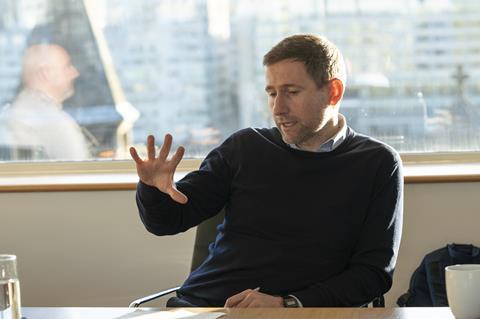
Simon Meehan: It’s a difficult one. We want to engage and tap into that culture and that set of fans who will engage with that stuff. But I think we’re still feeling a bit uneasy at times. There is a Chelsea Fans TV, it’s no way as popular as Arsenal Fans TV. We wouldn’t be able to share that level of opinion or that strident of an opinion on a club channel yet. We’re still figuring that out.
Stephen Sidlo: What do you measure as risk in that scenario? Is it sentiment depleting or rival fans taking the mic?
Simon Meehan: One of the big considerations is that you can’t do anything that is fundamentally detrimental to the team. As much as we talk about Chelsea football club as a business and talk about all of these different opportunities as fundamentally things to drive revenue, the aim is to reinvest that into the team. We’re still a football club. We want to be successful as a football club and obviously want to make profit at the same time. So, you can’t do anything that will be detrimental to the team. If you are putting out messaging that the players don’t like, the management don’t like, and it impacts them in a negative way, you shouldn’t be doing that. The product is the football, is the players. We want to be good at that and so we want to be helping them and improving them all of the time. That’s part of the risk.
Damien Cullen: For the Lionesses in the summer, we did a show with them every day of the Euros. Every day the players would see it and they would actually want to be on it and would almost be like co-producers of it. Still, we have to work continually with the performance team and make sure it works for them, because if it doesn’t, it doesn’t matter how many views you’re getting as we need to ensure our content adds to performance on field as well as off it.
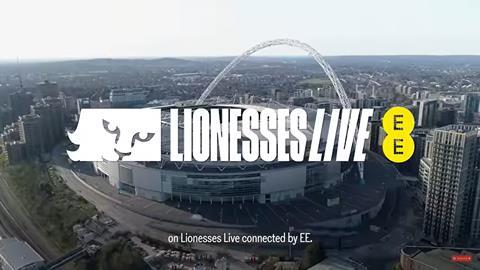
Simon Meehan: I also think there’s a bit of media risk. You know, you don’t want to be the object of mockery by rival fans or the Daily Mail. That’s not to say we shouldn’t push the boundaries. The last one is a brand point. There’s a lot of football clubs where their social media output is ‘banter’, and I struggle with that because I think Chelsea employees and fans have values which you must respect and adhere to. I think organisations increasingly need to be, or be perceived to be, values driven. So, we as Chelsea need to understand what our values as a football club are and authentically convey that to fans. If we are just bantering with people who are saying whatever about the club and the players, then we’re not really doing the right thing there.
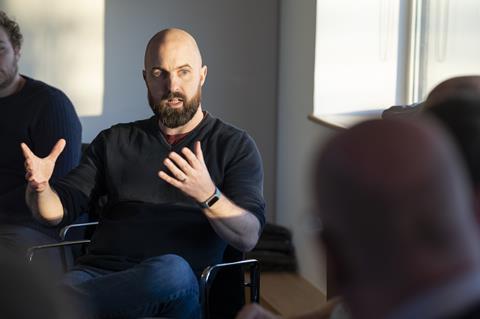
Damien Cullen: It’s a crowded marketplace. We’re all trying to find out what’s next, how do we engage more or enhance commercial revenue, how do we build new sports, or redefine old sports? But once you get it wrong authenticity-wise and it becomes too gimmicky, we don’t want it to be that. Everyone wants to be genuine, authentic, and build the strongest model rather than be seen to be, from a brand perspective, someone who is just chasing the newest thing that comes along.
Jake Bickerton: When it comes to production kit, what is your ‘go to’ kit list?
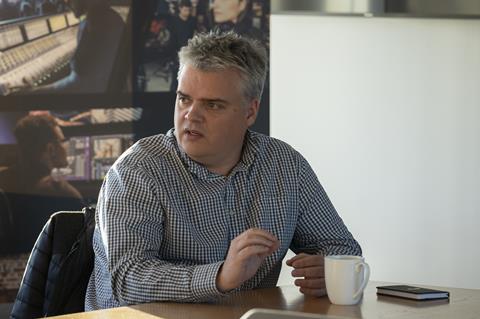
Brian Leonard: Where do you start… On shoots, it feels like Sony is leading as we use a combination of FX9, FX6 and FX3 cameras (depending on the budget). If you match the manufactures’ lenses, you feel like you are getting an even better response from the cameras. Regarding editing, as an example, we are 90% Avid and 10% other. What excites me most is the new improvements to the Avid Media Central platform. It is the tool that allows me to better utilise our media and deliver content quicker. I would like to think we have a reputation of being tier one on broadcast content, but this tool gets us a step closer to creating great content for social, in all of the flavours and styles of each platform, and all with just one click of a button. This will hopefully allow me to get closer in conquering the social world with tier-one broadcast content!
Craig Wilson: “We are seeing our customers make great use of the ever growing capabilities of MediaCentral with Avid NEXIS shared storage for their sports productions. With a solution from ingest to playout and integrated social media publishing, it is really bringing teams together to produce increasing amounts of content faster. The use of web logging, story writing and roughcut editing in MediaCentral | Cloud UX, coupled with the collaborative workflows with Media Composer, mean you have a continuous flow of creativity running through the production team.”
Simon Meehan: What’s essential for me is anything that allows my teams to capture content and get it quickly to the platforms. So, the right mobile phones, cameras and tools that allow us to add graphics or data viz overlays to imagery and video while on the move. We use tools like sprinklr and looker to measure performance, but I think we could build on those and go more granular. This is one for our data team at Chelsea FC, but it’s vital that we understand our audiences as much as possible and tailor our content to them.




No comments yet